|
Printables |
PowerPoints |
Online exercises |
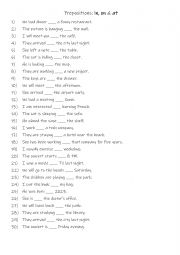
|
A1-A2 Prepositions: in - at -on
Students read the sentences to see which preposition is needed to complete the gap-fill. Answers on page 2.
Level: elementary
Age: 7-100
Type:
Downloads: 130
|
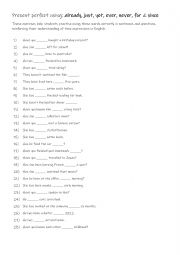
|
A1-A2 Present perfect using already, just, yet, ever, never, for & since
Students read the sentences / questions and complete them using one of the given words.These exercises help students practise using these words correctly in sentences and questions, reinforcing their understanding of time expressions in English. Answers on page 2.
Level: elementary
Age: 9-100
Type:
Downloads: 119
|
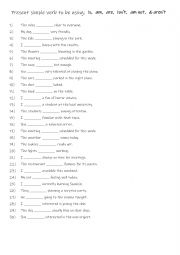
|
A1-A2 Present simple verb to be using is, am, are, isn�t, am not, & aren�t
Students read the sentences to see which form of the verb to be to needed to complete the sentences. Answers on page 2.
Level: elementary
Age: 8-100
Type:
Downloads: 102
|
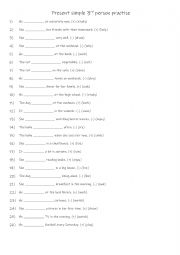
|
A1-A2 simple 3rd person practise
Students complete the sentences with the given verb. (+) means the verb is positive and (-) means the verb is negative. There are 13 positive and 13 negative sentences.Answers on page 2.
Level: elementary
Age: 8-100
Type: worksheet
Downloads: 131
|
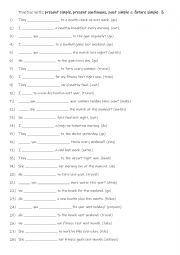
|
A1-A2Practise with: present simple, present continuous, past simple & future simple 3
First, students need to familiarise themselves with the 4 tenses and their use. Then they read the sentences to see which one is needed to complete the sentence using the given infinitive in (). Each tense is used 8 times! Answers on page 2.
Level: elementary
Age: 7-100
Type:
Downloads: 117
|
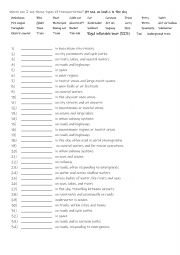
|
A2 + B1+ 34 types of transportation and where you can see them
Students match the type of transportation to the correct definition and place where they can be found. There are some new types such as Segway, Drone and Electric scooter etc. Answers on page 2.
Level: intermediate
Age: 8-100
Type: worksheet
Downloads: 118
|
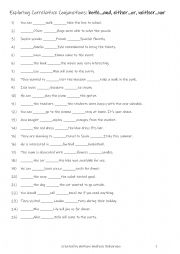
|
A2 -B1 Exploring Correlative Conjunctions both...and, either...or, neither...nor
These conjunctions help students clearly express relationships between ideas or items in a sentence. They provide a way to connect words, phrases, or clauses in a balanced and structured manner.Mastery of correlative conjunctions can enhance students overall writing and speaking skills. They add variety and sophistication to your language, making y...
Level: intermediate
Age: 10-100
Type:
Downloads: 117
|
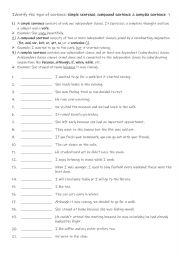
|
A2 Identify the 3 types of sentences: simple sentence, compound sentence & complex sentence 1
First, students need to familiarise themselves with the 3 types of sentences and their use. Then they read the sentences and identify which types they are. Each type is used 7 times! Answers on page 2.
Level: elementary
Age: 10-100
Type:
Downloads: 114
|
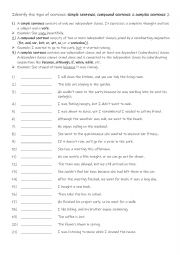
|
A2 Identify the type of sentence simple sentence, compound sentence & complex sentence 2
Students should learn to identify simple, compound, and complex sentences because it helps them write with more variety, organise ideas clearly, understand reading texts more easily, prepare for future learning, and communicate their thoughts more accurately. Each type is used 7 times. Answers on page 2.
Level: elementary
Age: 9-100
Type:
Downloads: 118
|
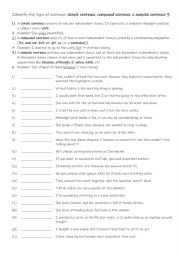
|
A2 Identify the type of sentence simple sentence, compound sentence & complex sentence 3
Students should learn to identify simple, compound, and complex sentences because it helps them write with more variety, organise ideas clearly, understand reading texts more easily, prepare for future learning, and communicate their thoughts more accurately. Each type is used 7 times. Answers on page 2.
Level: elementary
Age: 9-100
Type:
Downloads: 121
|
|
|
|
|












